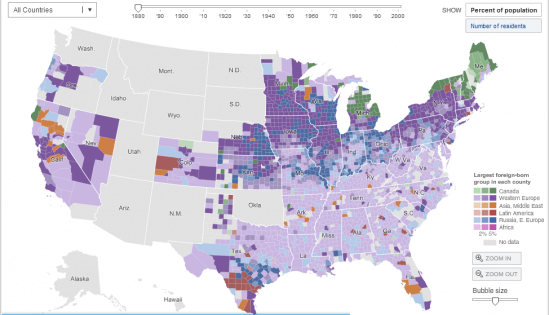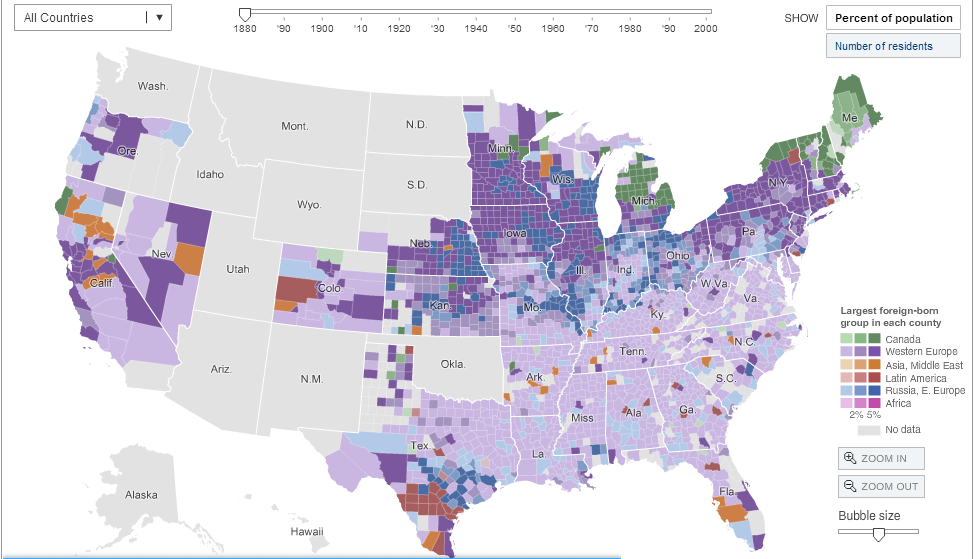Toxic mothers are famous gaslighting professionals. So are toxic fathers and toxic grandparents. Wisdom taught to grandparents by their grandparents is passed down to their children by role modeling as well as through intentional oral transmission. In this way, toxic family values are handed down from generation to generation.
The trouble with wisdom being handed down from the Civil War and Industrial Revolution generations to the 20th-century millennials is that their knowledge base was socially incomplete. People who were born in the 1800s were living in a completely different era than that of children being born today. Arguably, children born then were facing Primogeniture in Europe. Women had no rights to inherit property or do much of anything other than be a domestic worker or a “taken care of” wife, aunt, sister, a wisp of a nothing.
Education — meaning compulsory education — meaning children having a public school they were told by the local government they had to attend — did not even exist in the 1800s. Children were taught to read and write primarily by parents or a tutor in a homeschool learning environment if they were lucky enough to have been born into a wealthy enough class.
Farmhand labor was a top career move for most people born in poverty. No one had heard yet of a “middle class”. Blue-collar and white-collar labor divisions formally started to rise as factories were built, needing overseers. Slavery, at the start of the 1800s, was common in the United States. African people captured and brought in chains to the New World by greedy, narcissistic, and sociopathic slave traders were used to build most structures in the South and a great portion of work and domestic servitude was done by them up north.
Women did not have careers. Women were not welcome at most Universities. The right to inherit property or own property made all women — regardless of class, interest level, or status — “need a man” to survive. These women are the women whose life experiences were those that influenced the raising of our grandparents (if you are a Gen Xer) and Great-Grandparents (if you are Gen Y) when they were at their youngest ages.
These women — these mothers — taught men and women alike what their roles in society were to be as well as what to expect from one another for lifestyle quality treatment.
When you think about family social dynamics in this light, applying what you know to be true from history (generalized and free from a nationalistic spin), the evolution of the modern family comes rapidly into focus. Civil War-era becomes less about a date on a calendar and becomes more about — get this — an era.
People forget that one of the bloodiest wars in Western Civilization history happened on American soil. If you are from a family that came over fleeing religious persecution or are descended from men who came over as second sons pursuing a dream of man-made success bolstered by living in a region with few laws and rampant capitalism, your history lessons about what matters most in life on a social scale will tend to be different.
Religious zealots from the Puritanical era tended to settle by groups in small rural areas centering around the original 13 colonies. They spread across the country, founding one small town and church parish starting from the earliest times of colonization. Their “descendants” have evolved socially and emotionally into many of the folks currently beating the extreme right-wing drum.
Due to lack of social education from a historical perspective and pastors deliberately instructing parishioners to keep to themselves and take care of their own, the natural, logical social outgrowth of such groups is and was allowing the rise of church cults as well as political groups like the Tea Party to form.
Native American populations were historically corralled and wiped out. If disease did not kill them, a white man would. If they were left alive, they were rounded up and marched to reservations like animals marching to their death in a slaughter heard. Indian schools were built and devoted to wiping out all traces of indigenous culture from the lives and memories of their school children.
Even proving native blood is tough in modern-day because those who were full-blood natives often took “Christian” names to blend in and avoid persecution. Tribal rituals were outlawed, and English was the expected language. Native attire was openly ridiculed much the same way Muslim women are ostracized in contemporary America by bigots who don’t have enough common sense not to be offended by their head wraps.
Immigration en masse truly did not have a boom effect on North America until the Industrial Revolution. Waves of immigrants from Europe speaking different languages and a plethora of regional dialects continued to wash ashore seeking labor opportunities from 1850 through the 1940s essentially, noting that during that time World History saw:
- The slaughter of Tsar Nicholas and his family, overthrowing their dynasty in Russia, replacing leadership by coup to establish power for Lenin and ultimately creating Communist U.S.S.R.
- The rise of nationalism, as nations pledge to assist one another in times of war led to complicated alliance structures still affecting global politics
- The assassination of Archduke Ferdinand leading to political demands that nearly all European nations were forced to endure the battles of WWI on continental European soil
- The Industrial Revolution required improvements in transportation for the delivery of goods as well as the raping of natural land for resources including but not limited to timber, coal, and iron ore
- Steam engines and railway lines changed the structure of goods availability around the world
- Transcontinental passages became routine travel options, not flights of fancy to be pursued by explorers [think of this as their version of contemporary desire to colonize and travel back and forth to outer space]
- Men like Thomas Edison and Alexander Graham Bell changed the world
- The epic rise of capitalist culture was in full swing, ensuring that the wealthy steel, rail, and coal magnates were at the heart of banking, finance, and political influence
- Modern banks came into practical being — no longer institutions where only the wealthy kept treasure under lock and bank vault key
- Cars, trucks, and airplanes were not a serious thing… most American families could not afford to even own a car until the 1950s so everyone was still forced to work hyper-locally
- Electric lights were luxuries; vacuum cleaners were not even a thing yet so housekeeping chores were more tedious and time-consuming
- “Early to bed and early to rise” became common practice with the propagandist promotional slogan “8 hours to work, 8 hours to play, and 8 hours to do with what we please” becoming a demand of the factory working labor parties
- People began to rely on clocks and watches for the first real-time in human history — so the promotion of clock-watching and paying attention to time became an obsession for many
- Child labor laws that were enacted to “protect” inner-city children from hard labor in factories led to the rise of compulsory education laws, noting children whose parents both worked in factories were left alone at home with no adult supervision; for that reason, the idea of sending kids to public schools to decrease street crime in inner cities was a brilliant way to both train future factory workers to sit quietly in rows and follow orders complicitly but to ensure the state essentially handled babysitting
- The rise and fall of the Nazi Empire followed by the rampant promotion of “patriotic nationalism”
- The rise of the communist party internationally — manifesting as a corrupt system of political and social abuse due to Narcissistic and self-promoting sociopathic leaders failing to follow the methods or teachings of Marx and Engels
- Socialist strategies that work have been smear campaigned throughout America history (not European), creating a social and political philosophical division regarding attitudes about the practice of human compassion
- Massive fortunes were earned by taking advantage of other people’s labor efforts or the land
- Massive fortunes were lost in the stock market crash and subsequent Great Depression that affected all people living through, born in or growing up in the 1920s, 1930s, 1940s, and into the 1950s eras
The list goes on.
Understanding that the challenges men and women born in those eras faced helps adult children of toxic parents do a forensic psychology analysis of the “wisdom” taught to them and habits passed down by elders.
Was one of the adults in your life who was a primary caregiver a bigot because their parents taught them to be afraid of people from other races, countries, religions, or cultures? Chances are you are xenophobic to a certain degree now, too.
Do you know where your parents, grandparents, grandparents, great-grandparents, and great-great-grandparents were from? What was their story?

Here’s why it should matter to you.
A farmworker is going to teach their children different values and success promoting habits than a factory worker. Period.
A white-collar family is going to teach their children different success strategies than a blue-collar family because bottom line — their personal and family values systems are simply different (not necessarily better).
If your family was blue-collar, you have a disadvantage in white-collar arenas. If your family was white-collar, you are disadvantaged from an academic and cultural belief model likely to handicap your ability to be a successful entrepreneur.
Class divisions in socioeconomic status shift what we, as humans, prioritize as well as fear or “despise”. Middle-class women in inner-city areas — most likely bored out of their gourd — rallied for female voter rights, pushed for inclusion in advanced academia, demanded rights to own personal property, became paternalistic (rather than maternalistic) by nature of their own narcissism with regard to volunteering to help immigrants socially reform, and more.
Women, mothers of men, were the role model of both how to treat a woman as well as how to regard a female. If a woman was fortunate enough to have a husband that did not beat her with alarming regularity by habit, it truly was a miracle. The women who fought for property rights are the ones to credit today for females being allowed to divorce and live as a single woman. Prior to their success struggling for equal rights, a woman married to a horribly abusive or socially and emotionally juvenile misogynist would need to learn social skills to survive and persevere — not strive for independence.
Stop right there and think for a moment.
We are serious. Go back and re-read that.
If family values are passed primarily by oral tradition, meaning wisdom is verbally shared, and social customs are passed down by active participation in social dynamics, what “life skills” were needed to be a man or a woman living in an era where nearly every person relied on the other to survive but gender roles, race divisions, and religious orientation pervasively prevented humans of both genders from ever experiencing life in such a way that reflected anything different?
People who argue that when they were kids segregation was working out just fine are the kind of toxic family members we are talking about. Grandma who stayed with grandpa who was always cantankerous and in a bad mood taught your mother or father very specific lessons about how to survive and thrive — namely she enabled while he abused.
Families whose mothers dragged them to church every Sunday.
Families whose fathers encouraged boys to hunt, taught them how to leer at women, and gave them their first manly drink of alcohol.
Parents and grandparents who drink soda pop and smoke.
Who we are today as modern citizens is an amalgamation of who our individual ancestors were socially and emotionally in the past. If we fail to factor in how the stories our parents told us about who to trust and what to fear in our maturity equation, chances are we personalize domestic abuse far more than is logically prudent.
If cleaning your plate is something you were forced to do, chances are grandma and grandpa’s parents were terrified that whatever food was there might be the last family meal they could afford. Clueless, uneducated parents might not make such a logical historical connection, but people who read actively and have taken the time to learn about social customs as well as what it was like living in other periods of history have a much easier time adapting to change.
Why?
Because they know that it’s okay to let their kid not eat that plate or bowl of mushy, now cold canned peas.
Situational ethics include responding appropriately to the now — not repeating destructive habits in the present moment because that’s the way we were taught to think, feel, do, see things, or be.
If you come from a toxic family (or ANY family for that matter), take time every day to talk with your children, your parents, your grandparents (if they are still alive and willing)… take the time to talk with them and ask them about what was like when they were young children.
Ask them to tell you stories about people’s personality types — how they acted, what they loved, and what they appeared to hate, be the least tolerant about with regard to attitudes or behavior, or what they fought against.
If your family came from overseas post-1850, who were they, why did they come over, and where did they settle?
If your family came between the time the Nina, Pinta, and Santa Maria first landed, how much of Plymouth Rock’s history affects your own family’s religious beliefs? What about lifestyle with regard to community and or personal work ethics?
If your parents were drinkers, how did they use or abuse alcohol? When did they start drinking? What were the alcohol use habits of their parents and grandparents — understanding that people who supported the temperance movement were likely to have children who rebelled or became aggressive activists during the years of prohibition?
Did anyone in your family history make bootleg liquor? If so, what has been your family’s historical sentiment toward government restriction of personal rights? How about how they feel about drinking as a social thing? Was wine always served with meals or was beer part of Sunday football traditions?
If there was a predator in the family — meaning someone sadistic or selfish and malicious — understand that coping skills, as well as seriously toxic role modeling of entitlement, affect all generations. Child abuse, for instance, affects the adults forced to enable out of learned helplessness.
Sexual abuse? Victim silence is expected to protect the “family reputation”. Physical abuse of children was common, with abusive mothers terrifying kids as much or more than stern, emotionally distant fathers coming home to be told to spank children while acting like Enabling Henchmen at the behest of angry, spiteful, or vindictive mothers.
Now, we’re not in any way, shape or form suggesting that smacking a hand one time of an unruly child trying to grab things in a store or supermarket is child abuse. If they break something a parent cannot pay for or they grab a sentimental item at someone’s home and drop it on the floor, replacing the object or paying for it becomes difficult.
Scraping Ivory soap behind the tooth of a child who uses nasty swear words and name calls a schoolmate, parent, authority figure or teacher gives a tangible reference reminder to watch your mouth. We are not talking about unpleasant things parents who love their kids sometimes do because of swift, decisive socialization methods that are annoying and technically narcissistic abuse based on “entitlement” rights of parents over children’s work.
A perfect example is telling a child 100 times over not to put their hand on a hot stove. If they simply refuse to listen, sometimes keeping your mouth shut and standing back is the right way to help them learn. When they reach for the stove, it breaks your heart to know they are going to get hurt. As a loving parent of a willful child who insists on learning things on their own (rather than listening to sage advice about practical matters), being ready to stick a sore digit under ice-cold running water immediately or having an ice pack ready and pre-made for such an event is good form.
What we are saying is when you combine genetics with a social history of both societal and familial influences in the forensic analysis of personal identity and ideological formation, you get a much fuller, richer, and rewarding experience from going through any deeply introspective psychological process.
It is much easier to forgive a parent who demands you clean your plate when and if you start to realize they most likely were trying to emulate the concern their parents showed them if they were raised by people who were affected by WWII and had limited rations or were raised by people who literally lost everything in the Great Depression.
Is it worth harboring resentment toward parents and grandparents who abused us in ways they thought were helping save us from the big, bad, scary world? Should we harbor hate and resentment in our hearts for travesties of justice forced on our ancestors, clinging to our demands for both validation and justice to be served?
Truthfully, that’s an option — but one that seems to lead nowhere with regard to long term strategy. If we freeze time by refusing to let grudges go, meaning we refuse to work for solutions and instead stonewall or become caustically abusive in the retaliatory sense to others while we strive to claim power for ourselves, we’ve all — as human citizens — missed the proverbial boat.
Letting go does not mean overlooking. It also does not mean enabling, excusing, or giving ourselves permission to swing the pendulum and become abusers by antithesis. It means grasping that not all questions have one convergent solution. It means no particular lifestyle choice is going to be right for every person. It means some people are biologically more intelligent than others — and have a greater capacity for emotional intelligence. It also means that chronological age is relative to a body — not a person.
If someone was abused at a young age, suffered severe trauma themselves, or witnessed atrocities at any age, the bottom line is it changed them. Suffering, poverty, demoralization, fear (as in legitimate, life-threatening peril-inspired rational and logical response to a valid threat or a perceived danger), and truly the times (meaning cultural relativism) change people by nurture.
Brutality exacted, witnessed, or experienced changes people… and the people it changes are the same people who are and were ourselves, our parents, our grandparents, and all previous generations.
For that reason, take some extra time to figure out why Grandpa says you cannot trust ____ people. Figure out why Grandma says you can’t trust women. Figure out why mom really needed you to eat the food on your plate — especially if you did not like it.
[Vegetables, anyone? Smart moms know that children who eat them daily have better behavior due in part to the brain not being starved for adequate vitamin and mineral nutrition.] And understand power struggles between parents and children happen in every family, noting that narcissistic children think they know everything because their worlds are small and they lack experience.
If you were abused as a child — sexually, physically, treated as a scapegoat, or endured horrific verbal abuse on a regular basis — help claim and reclaim your true power by going no contact with abusive people and learning how to avoid falling in with narcissistic peer groups in general.
Why?
Because even though it might not feel awesome to have to functionally estrange yourself from every person you met or care about that you knew prior to going “No Contact”, honest to GOD learning to set healthy lifestyle patterns that are mindfully put into place to help the success of current and future generations will help your grandchildren and great-grandchildren.
We are who we decide to be, both as a culture and as people. Is following advice meant to keep a woman with her abusive husband because if she’s alone she cannot own her own home or make a decent living smart to teach young men or young ladies living in the 21st century? Nope. Neither is teaching misogynistic beliefs, how to enable Cluster B personalities or promoting nationalist propaganda during a time when the Internet exists.
Let the Internet and Space Colonization challenge influence your decision making about what lifestyle habits to teach your own children and to, as adult humans, role model. Humans have successfully been living and working in outer space every day together — both men and women from various nations — every day for the past 15 years. President Obama routinely talks to them by PHONE.
Get a handle on this, folks — because if we as a collective American culture specifically and as Westernized moderns don’t start thinking about the future and what our own children’s children’s children are going to need to do to survive, fit in, for career work, or to thrive, literally, we’re handicapping up and coming generations by observantly insisting we self-indulge our short-term egoistic pride.
Narcissistic Abuse recovery for the nation truly begins by changing the dinner table dialogue in contemporary American homes.





